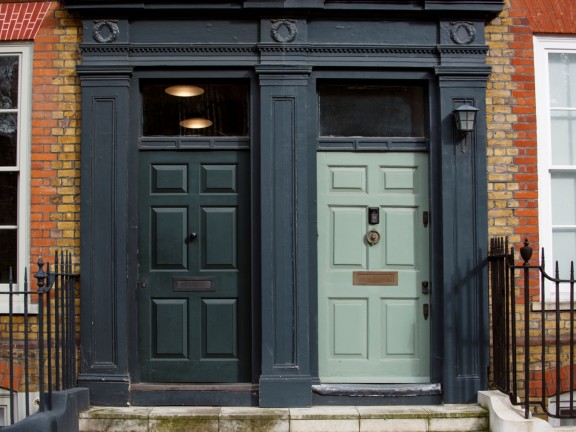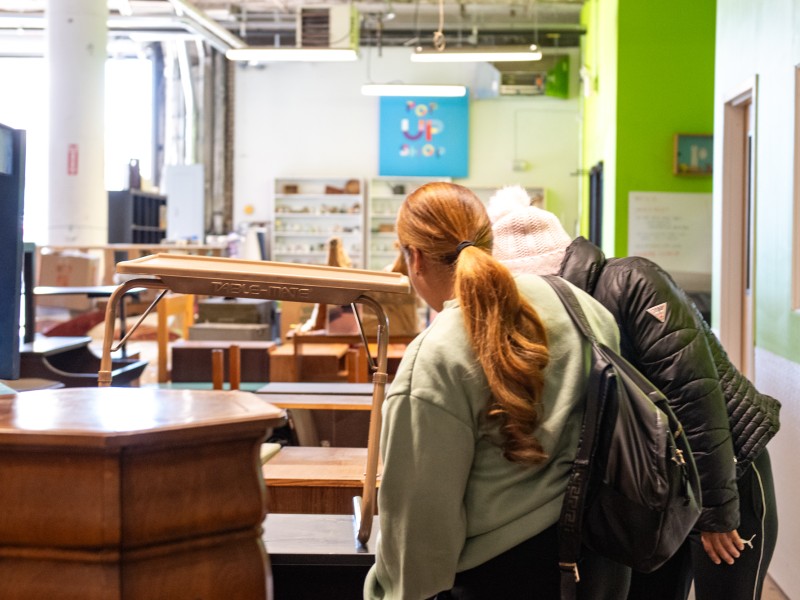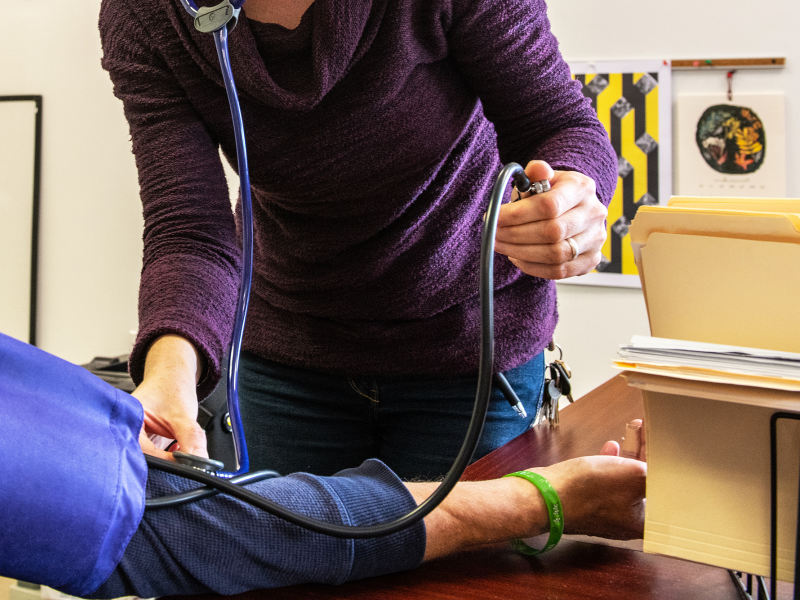Addressing Homelessness with Equity: Supporting LGBTQ+ Communities

The heartbreaking reality in the United States is the number of people experiencing homelessness is on the rise. As seen in the 2023 State of Homelessness report from the National Alliance to End Homelessness, individuals experiencing homelessness and people experiencing chronic homelessness are at their highest rates ever. We’ve previously documented the housing disparities for sexual and gender minorities, as well as the structural factors and lack of cultural competence experienced within the homeless response system.
More recent data indicates a rapid increase in homelessness among gender-expansive individuals, further widening the disparity in their experiences of homelessness. The report highlights several calls to action to address this issue. It emphasizes that providing stable, long-term, and safe housing environments—through Permanent Supportive Housing (PSH), Rapid Re-Housing (RRH), and independent, affordable housing—can help mitigate the historical inequities in housing, income, and wealth faced by gender-expansive people of color. Additionally, the report calls for an evaluation of equity within rapid re-housing and permanent supportive housing programs, noting that housing-first models of PSH and RRH enable highly vulnerable gender-expansive populations to more easily find and maintain stable housing.
In agreement with the above-stated calls to action, we emphasize the distinction between equity and equality for LGBTQ+ identified individuals. Equity allows everyone to have an opportunity to achieve optimal outcomes regardless of their social position. While equality is a desirable outcome, equity is the process of arriving there. Equity can’t be accomplished by treating everyone equally; rather, everyone must be treated justly according to their circumstances. This Pride Month, we want to highlight how Pathways to Housing PA is leveraging the Housing First model to respond directly to existing equity issues for LGBTQ+ people within the homelessness system in Philadelphia. In particular, we are reserving a portion of our typical Housing First services as well as our new addition of a Shared Housing approach specifically for LGBTQ+ identified individuals.
Our newest modified Assertive Community Treatment Team, Team 10, is now specifically supporting people exiting homelessness through substance use treatment settings. To open additional avenues to stable housing for LGBTQ+ individuals, Pathways has partnered with Morris Home, “the only residential recovery program in the country to offer comprehensive services specifically for the transgender and gender-expansive community” and Rainbow House, a “recovery residence that meets the housing needs of the LGBTQ+ population in Philadelphia.”
Staffed by a compassionate and culturally responsive group of interdisciplinary professionals, Team 10 has housed 5 trans women from these settings, including two who are approaching a full year in their permanent supportive housing units. When Danita Dalton, Service Coordinator on Team 10, talks about these partnerships she notes that the team is proud to be the only team to focus on supporting LGBTQ+ participants. She also highlighted their heightened focus on advocating with other service providers to use correct pronouns and chosen names during clinical interactions. The sense of pride and connection to the mission of supporting LGBTQ+ participants is clear as she shares, “this is our baby!”
As with many participants in a housing first program, gradual trust-building has been a critical part of the process. These housing journeys have not been without their challenges. For example, coming from a highly structured residential treatment can be a big shift once folks with substance use disorders move into their own unit, but a clearly communicated harm reduction approach has been a helpful aspect of this shift. One success that these participants have shared is that having permanent housing allows them to stop relying primarily on sex work for their survival needs, and they can choose who and when to allow guests, a level of autonomy that those of us housed long term may take for granted.
Shared Housing is not a new concept. In fact, the idea that every single individual should have their own apartment space is a newer ideological concept. When comparing housing first approaches on the West Coast of the US with those on the East Coast, we see that the former has used shared housing approaches much longer in response to the earlier and more intense experience of crisis in affordable housing availability. As the ongoing housing crisis further impacts other areas of the country, we see the shift toward shared housing approaches follow.
At Pathways, we have 12 units set aside as shared units serving 30 individuals. We have developed an infrastructure to support these homes, including roommate agreement structures, a Shared Housing Coordinator, and a dedicated Certified Peer Specialist. Like Team 10, the Shared Housing staff have specifically explored partnerships with LGBTQ+-affirming recovery facilities as key referral sources for permanent supportive housing supports in our shared housing units. Our Director of Community Inclusion & Advocacy notes that the participants in this Shared Housing program can provide each other a level of peer support that would be otherwise inaccessible. These are typically people they met and were matched with through their shared recovery program. We think this type of housing support matches well with the commonly experienced “found family” for LGBTQ+ identified people who may have experienced a loss of traditional family support.
While these two examples of serving the LGBTQ+ population are small in the grand scheme of unsheltered homelessness in the U.S., we think they are key tools in the fight to end homelessness, which will not be successful without an eye toward equity.


